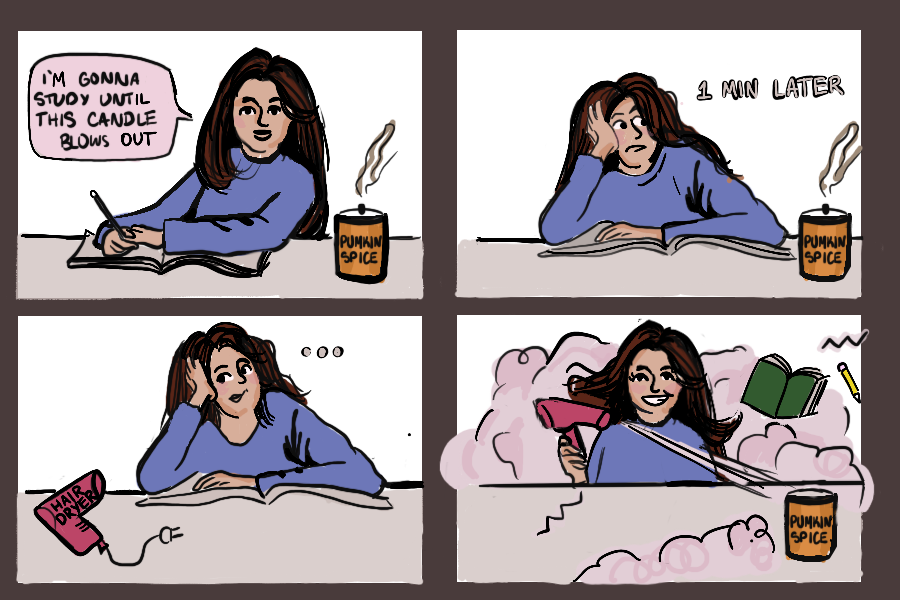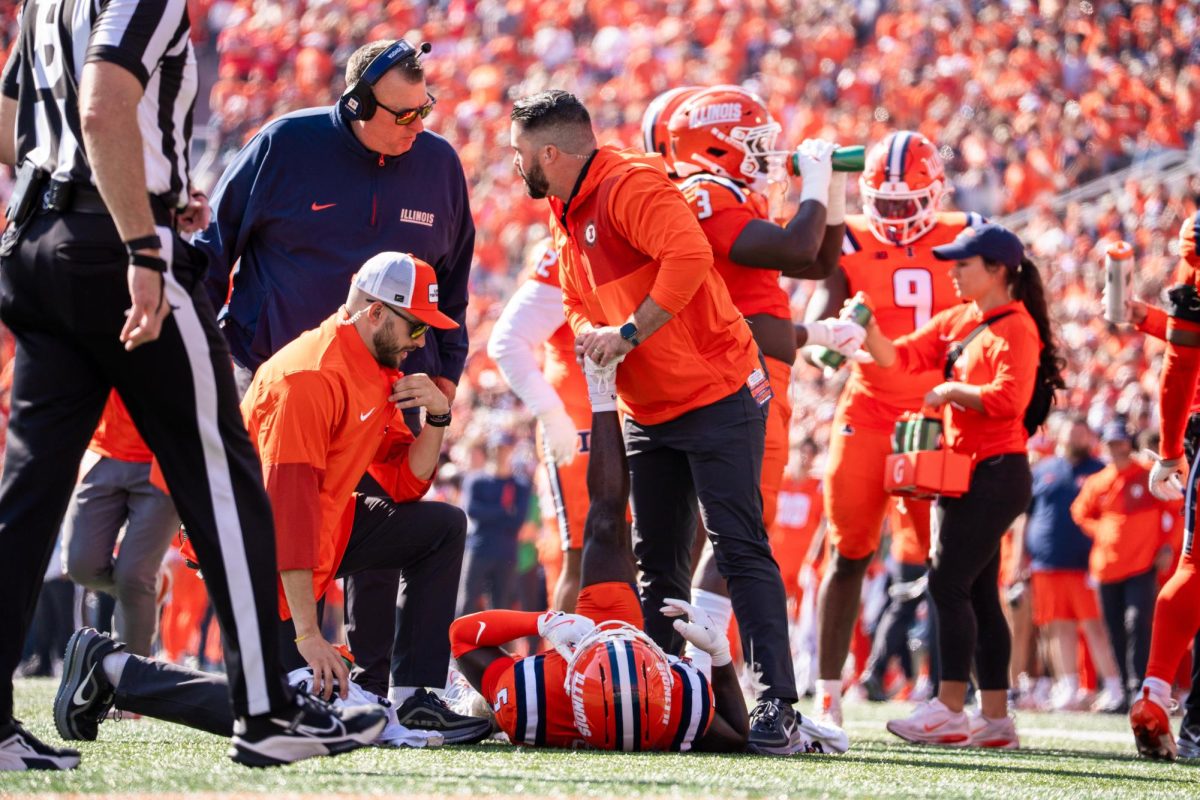When Michael Auger arrived on campus as a freshman, he didn’t quite get what he was looking for.
He joined the Illini Chess Club and found six or seven people casually playing chess. Auger had played at competitions across the nation, ranking among the country’s top players, and even winning two quick-chess national championships. He enjoyed the casual atmosphere but wanted more intense competition.
So, when he became the club’s president this year, the sophomore brought in a new mentality — and a new batch of players.
Auger had competed against Eric Rosen and Aakaash Meduri since childhood.
Rosen, the 2011 K-12 national champion, was recruited to play chess out of high school by the University of Texas at Dallas. Texas-Dallas, one of the nation’s top chess programs, offered him a full ride, but he would be relegated to the program’s B-team, missing out on a spot at top competitions.
Get The Daily Illini in your inbox!
Auger encouraged Rosen to turn down the offer and join him at the University. Rosen finally decided the day before the national decision date that Illinois was the place for him. The two became roommates at Bromley Hall, as well as the club’s No. 1 and 2 players.
Meduri began playing against Rosen and Auger at age 8 and continued at Hinsdale Central High School. When he came to the University, the biochemistry major became the team’s No. 4 player.
At the beginning of the year, Auger spent hundreds of dollars trying to attract new members to the club. At Quad Day in August, the club’s leaders offered Amazon gift cards to anyone who could beat them.
One of the many players who failed to defeat Auger on Quad Day was Leo Luo. While he hadn’t played chess for a while, Luo was high-ranking player in China before he stopped playing at the age of 11, and the loss really bothered him. He decided to come to the club and eventually became the No. 3 player in the club, rounding out the four-man team.
While all Auger and Rosen were able to compete at were national competitions in high school, they quickly discovered that collegiate chess was an entirely different ball game.
“We were always up there at nationals (in high school),” Auger said. “All of the sudden we get thrown into the (collegiate) tournament, and it’s like, ‘Where did this come from?’ It was definitely a unique experience being the underdog again.”
Despite being heavily outranked, the chess club tied for first at its first tournament of the year.
“We thought that was going to be the highlight of the year,” Auger said.
But then the club won their next competition. And the one after that.
The Illini went into the Pan-American Championships, the nation’s premier collegiate chess tournament, seeded No. 14 out of 44 teams. The University hadn’t competed at the tournament since the 1970s, and it took a lot of planning and administrative work to make the trip happen, including securing funding from the Student Organization Resource Fee office.
“It felt like an accomplishment even getting there,” Auger said.
The Pan-American Championships boasted the nations’ top chess teams. But, by winning four games and drawing two, the Illini were able to continue their Cinderella story with a tie for first, guaranteeing the team a spot in the collegiate chess final four, officially known as the President’s Cup.
“When we won Pan-Ams, I knew we did something that shouldn’t have been done,” Auger said. “But I didn’t realize that people would notice.”
But people did notice. Rosen and Auger have been featured in the Chicago Tribune, the Chicago Sun-Times, WGN radio, DNAinfo and WCIA.
“Everyone pays attention to the basketball team, and the football team, and no one really hears about the chess team,” Rosen said. “So it’s cool to have all these stories about us.”
The Illini Chess Club will again be heavy underdogs at the Final Four. The other three schools, the University of Texas — Dallas, the University of Maryland — Baltimore County and Webster University, all flaunt chess scholarships and coaches.
These schools recruit internationally for chess and boast the world’s top players, and Auger said the tournament is one of the world’s premier chess competitions.
“If you take us out of it, it would be the best players in the world competing against each other,” he said.
The competition will include teams that boast at least one FIDE grandmaster, the highest rank given to a chess player in the world. Rosen is the only member of the Illini Chess Club to have an international title, which is FIDE master, two notches below grand master.
“It’s pretty tough competition, but the nice thing about playing a well-known chess player is that most all grand masters have several, several chess games published online,” Rosen said. “So that allows us to kind of study how they play and prepare openings for them, the sequence of moves to begin the game and we’re able to use that to our advantage.”
He said playing tough competition also has a mental benefit.
“I enjoy playing stronger competition because there’s really nothing to lose,” Rosen said. “You’re expected to lose. There’s really no pressure. From my opponent’s point of view, he’s probably terrified to lose to me because that would be a devastating loss for him. I’m just going to go to the tournament and have fun.”
For Rosen, the competition made the tournament even more interesting. He turned down a spot as a reserve at Texas-Dallas, but he will be sitting across the chess board from its best player this weekend.
Despite all the success and publicity, Rosen and Auger said they’re still just having fun.
“It’s awesome now,” Auger said. “I’m with all my friends on a chess team. We’re kind of running the team ourselves rather than just being a member of some B-team, and we’re out there competing with them.”
Johnathan can be reached at [email protected] and @jhett93.





